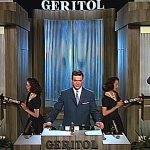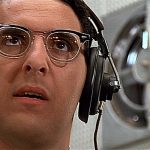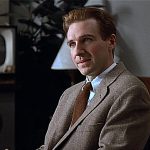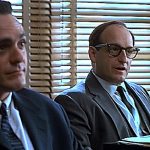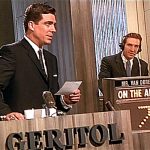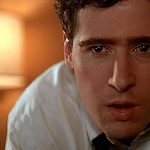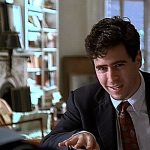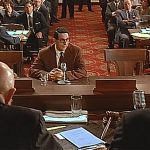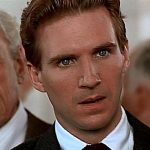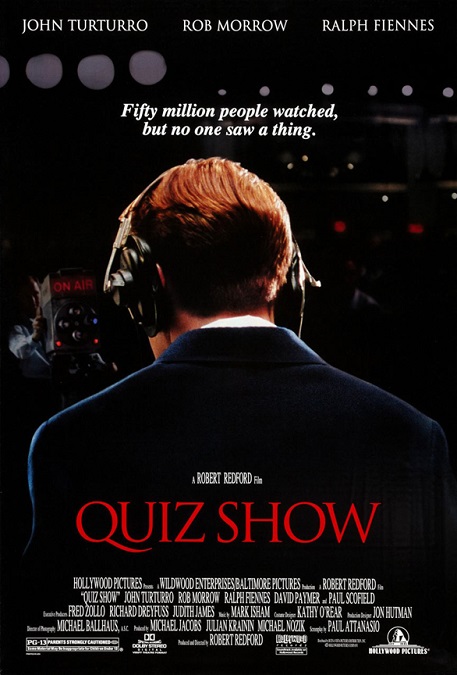
Quiz Show – 1994
This certainly wasn’t a bad movie. On the contrary, it was good enough. It was just slow and bordered on dull. The problem wasn’t with Robert Redford, the film’s director, or with the lesser known yet competent cast. It was the subject matter. It wasn’t deep, surprising, intense, or daring. It was just a plain and fairly ordinary movie. That doesn’t make it bad, just a little lifeless.
It is based on the true events surrounding the popular quiz show of the late 50s, Twenty-One. You see, televisions had only made it into the homes of the general public after WWII. It became a powerful tool for swaying public opinion. Retailers found that advertisements on television boosted sales immeasurably simply because they could hard sell their product to a nation that was ravenous for the entertainment that the medium provided. TV stars became wildly popular celebrities, and this included game show contestants. In fact, they had the potential to be more popular than regular TV personalities because they were the common man enjoying instant financial success and national hero status, an attractive prospect to most Americans.
But there was a scandal surrounding Twenty-One. The show was rigged. The network, NBC, and their sponsors had complete control over who won and who lost. It was a quiz show that was supposed to be based on a person’s knowledge of trivia. But it was all a lie. Executives decided who was popular and who would make more money for their sponsors. Based on those decisions, contestants would be given the questions and answers in advance. They would be told how to behave and what to say. And when they were no longer popular, or when sponsorship sales had plateaued, they would be told when to take a dive and answer a question wrong.
That’s the set up. The main plot of the film follows three men. John Turturro plays Herb Stempel, a popular contestant who is on Twenty-One. When he is told to give a wrong answer, he is outraged, yet does what he is told. The second man is Charles Van Doren, played by Ralph Fiennes. He is the son of a prominent college professor who is set up to replace Stempel as America’s golden boy. He has a moral issue with the dishonesty of playing the rigged game, but he is seduced by the money and instant celebrity. The third man is Dick Goodwin, played by Rob Morrow. He is a congressional lawyer who goes to New York to investigate the allegations made by Stempel that the show was rigged.
Goodwin is really behind most of the film’s drama, and Morrow stood out to me as a good actor. True, most of the critics praise went to John Turturro and Paul Scofield who played Charlie’s father, Professor Mark Van Doren, both of whom did a fine job, but I think Morrow’s performance was just as enjoyable to watch. It was his character who brought the scandal to the House Committee for Legislative Oversight, exposing the truth about how the American public had been deceived.
But I’m looking at the story through my modern eyes which see both truth and lies as commonplace in the world of television and advertising. But I suppose that the relative newness of television being made available to the general public was an issue. People were not used to being lied to. And when it turned out that their common-man heroes were revealed to be frauds, they were incensed.
But after all the drama, the investigation, the hearings, and the confessions of guilt, the movie did have an interesting point to make. The revelation of the scandal didn’t change anything. Though the article that I read said that the scandal nearly caused the death of the game show genre on TV, it didn’t. Game shows are still wildly popular. Even the network executives who were behind the rigging got away scot-free, using simple denial, and a willing scapegoat or two.
And speaking of the scapegoats, great performances were turned in by David Paymer and Hank Azaria, as Dan Enright and Albert Freedman, the studio producers who actually gave the contestants the questions and answers before the show. And I have to mention that, again, with my modern sensibilities, I can almost see the unapologetic position he took during the hearings. When addressed by the committee, he says, “Well, the sponsor makes out, the network makes out, the contestants see money they probably would never see in a lifetime, and the public is entertained. So who gets hurt?”
On the one hand, it is actually a valid argument… almost. On the other, it is made clear that Charlie Van Doren’s reputation and career were damaged, but only because the scandal was made public. Herb Stempel’s sense of vanity was hurt, and more because an anti-semitic angle was lightly touched on. And the public was hurt because they were made to feel like saps. And in light of that, the film itself can been seen as a commentary on how we, in the modern age, are aware of how television lies to us, though we have been lied to so often that we no longer care. A little sad, if you think about it.
